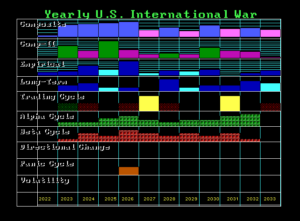Unpacking the Impact of Proposed Sanctions on Russia: A Critical Analysis

In a rapidly changing geopolitical landscape, the question of U.S. sanctions on Russia has become a heated topic. Recently, former President Donald Trump suggested implementing further sanctions to pressure Russia into peace negotiations regarding Ukraine. But is this strategy effective? At Extreme Investor Network, we delve deeper into the nuances and potential repercussions of such actions, presenting insights that go beyond the surface level.
The Question of Sanctions: Are They the Right Move?
Trump’s Strategy Under Microscope
Trump’s proposition to impose more sanctions has sparked a significant debate. Critics argue that these sanctions are not only ineffective but may actually exacerbate tensions. A poignant point raised by various analysts is that the current rhetoric from Europe, especially from nations like Germany, seems to stoke the flames of conflict rather than promote peace. In light of this, it’s evident that sanctions without a broader diplomatic strategy might not yield the desired outcomes.
The European Perspective on Conflict
In Europe, sentiments towards the ongoing conflict are complex. Many in Germany view a military response as a necessity. The economic difficulties faced by the European Union could further escalate this tension; as leaders grasp for a unifying cause, war could increasingly seem like a remedy to domestic challenges. This backdrop raises critical questions: Are the EU leaders genuinely seeking peace, or are they leveraging conflict as a distraction from their own economic woes?


Economic Reality Check: A Tale of Two Economies
Despite a larger population, the EU’s GDP growth lags significantly behind that of the U.S. This discrepancy raises alarms about the European reliance on outdated economic models, including elements of socialism and Marxism that may not serve their future well. With the EU’s economic fabric fraying, many question whether continued military engagement is a viable solution.
The Path Forward: A Call for Realism
If we step back and assess the situation from a rational standpoint, we might see that Putin’s strategy could involve preparing for more significant military confrontations, especially if U.S. policies continue to push toward escalation. The potential for a new European war is not merely speculative; it poses a very real threat if policymakers fail to take a measured approach.
Navigating Towards Peace
At Extreme Investor Network, we advocate for a balanced approach. This involves not only addressing immediate diplomatic concerns but also fostering economic resilience in the face of global challenges. As we move into 2026, murmurings about potential "panic cycles" in various markets underscore the urgency for carefully considered economic and political strategies.

Conclusion: The Need for Open Dialogue
While the notion of sanctions may hold a certain appeal for some policymakers, the potential repercussions are staggering. Combating systemic issues in the EU through military action won’t resolve the underlying economic distress; instead, it risks spiraling into broader conflict. The path to peace requires more than threats reiterating the same failed strategies. Open dialogue and strategic negotiations must take precedence to address the root causes of conflict sustainably.
As developments unfold, stay tuned to Extreme Investor Network for in-depth analysis and insights that equip you to navigate these tumultuous waters of global economics and geopolitics. Our commitment is not just to inform but to empower our readers with the tools needed to understand and adapt to an ever-evolving world.

